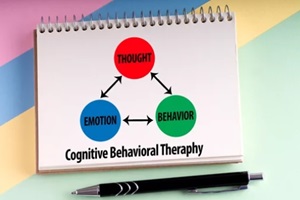
 It’s no secret that Washington, DC, is a bustling metropolis alive with people of all backgrounds and situations. From bustling to and from work to navigating traffic to running errands and dealing with the density of people and the cost of living, those who reside in DC have no shortage of potential stressors.
It’s no secret that Washington, DC, is a bustling metropolis alive with people of all backgrounds and situations. From bustling to and from work to navigating traffic to running errands and dealing with the density of people and the cost of living, those who reside in DC have no shortage of potential stressors.
For many, taking an intentional approach to this aspect of their lives can reap significant benefits—and that’s why cognitive behavioral therapy in DC is so popular. Let’s dive into the practical applications of cognitive behavioral therapy (CBT) in the daily lives of DC residents.
From stress management to improved decision-making, this blog will explore how incorporating CBT principles enhances mindfulness and well-being in the bustling environment of Washington, DC.
What Is Cognitive Behavioral Therapy?
Cognitive behavioral therapy (CBT) is a method of reforming thought patterns and lifestyle approaches that puts power into patients’ hands so they can solve complex problems on their own.
The pillars of CBT are integrated into everyday life so that people have the strategies they need to confidently approach what is causing trouble in their lives and create uplifting and effective thought patterns that reframe the way they perceive issues.
Cognitive behavioral therapy is best started alongside a therapist, who can help you navigate the basics and set up strategies that work for you specifically. Once you understand what makes you tick and how to identify and change harmful thought patterns, you can practice these skills on your own each day.
Integrating CBT into Everyday Washington D.C. Life
Cognitive behavioral therapy will be slightly different for everyone, as each person responds to different types of activities and thought patterns in unique ways. While one person may find that quiet meditation is the key to calming themselves down, others may notice that it only stresses them out more.
Your therapist can help you find the practices and thought patterns that fit your personality and situation. In general, CBT will include the following practices as part of everyday life.
Mental and Physical Relaxation
To think clearly, you need your mind to be free of distractions—and one of the most pressing and distracting things your body can experience is heightened emotions such as anger.
 CBT in your daily life will draw your attention to these emotions so that you can identify them rather than stifle them. Feel them, name them, and then decide what to do with them so you can put them out of your mind and move on.
CBT in your daily life will draw your attention to these emotions so that you can identify them rather than stifle them. Feel them, name them, and then decide what to do with them so you can put them out of your mind and move on.
For many people, simply breathing deeply through the nose and out the mouth for a few minutes is enough to calm their minds. It lowers the heart rate and reduces the impact of hormones released during anger and fear responses. A relaxed body enables rational decision-making.
Alternatively, many people find progressive muscle relaxation helpful. It can be difficult to relax on command, so instead, tense one of your body parts, such as your upper arm. Then, relax. Move on to a different area. By doing this, you are intentionally releasing tension throughout the body.
Active Processing
Being intentional about describing what you are experiencing is one of the most important steps in addressing it. Your therapist can help you identify a method of journaling or reflection that helps you to actively process the situation.
For instance, you may start by writing down your emotions. Then, describe what happened to cause this emotion to occur. Then, step away for a moment and return to your writing to identify harmful or unhelpful thought patterns (such as describing the situation by saying that “no one likes me”).
Challenge these patterns by writing alternative possibilities (“I cannot expect every person to get along with me, and that is okay”). Regularly practicing these alternatives makes your brain more likely to recognize them as reality in future difficult situations.
Manageable Breakdowns
One of the most challenging things in daily life is being faced with difficult tasks that seem overwhelming or impossible to complete. CBT equips you with the strategies you need to break these large tasks into small items that are easily achievable, compounding your progress until the big work is done.
Your therapist can help you identify what types of bite-sized tasks resonate with you; for instance, if the garage could use a cleaning, some people may be motivated by starting with removing the clutter.
 Others may find the term “clutter” equally overwhelming—what’s the difference between clutter and important items to keep? Perhaps this should be broken down further into “throwing away items that have not been used for more than a year and placing the rest to the side.”
Others may find the term “clutter” equally overwhelming—what’s the difference between clutter and important items to keep? Perhaps this should be broken down further into “throwing away items that have not been used for more than a year and placing the rest to the side.”
Learn Strategies from Washington D.C. Cognitive Behavioral Therapy Experts
Living in Washington, DC, offers plenty of opportunities—not just for work and leisure but also for stress and anxiety. By integrating cognitive behavioral therapy into your everyday life, you can approach difficult days confidently and maintain healthy and useful thought patterns.
The experts at Aquila Recovery Clinic can get you started with CBT principles to apply in your everyday life. Contact Aquila Recovery Clinic to schedule an appointment.




